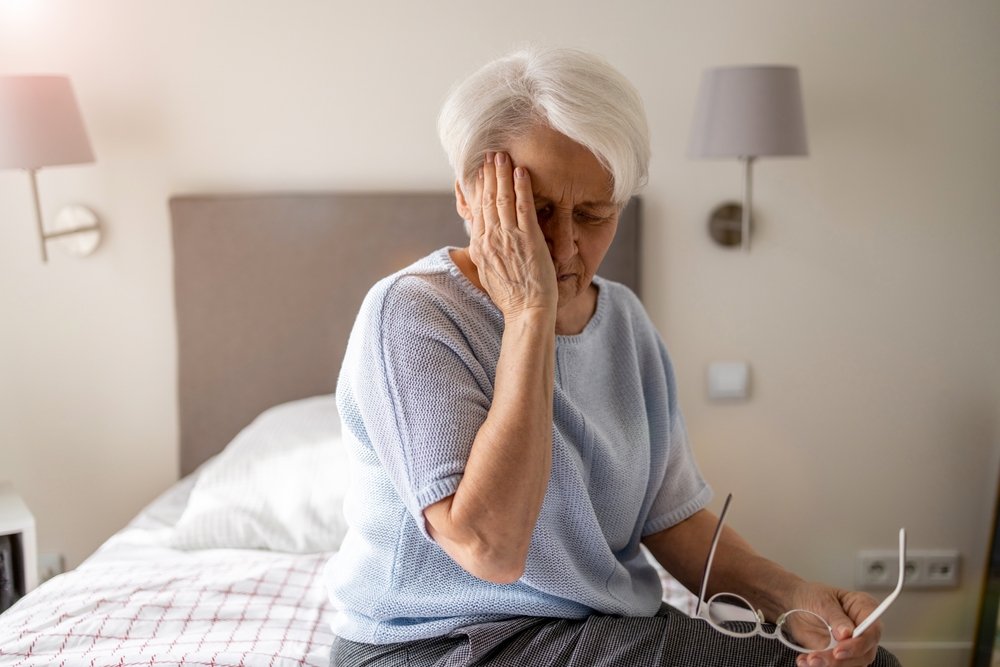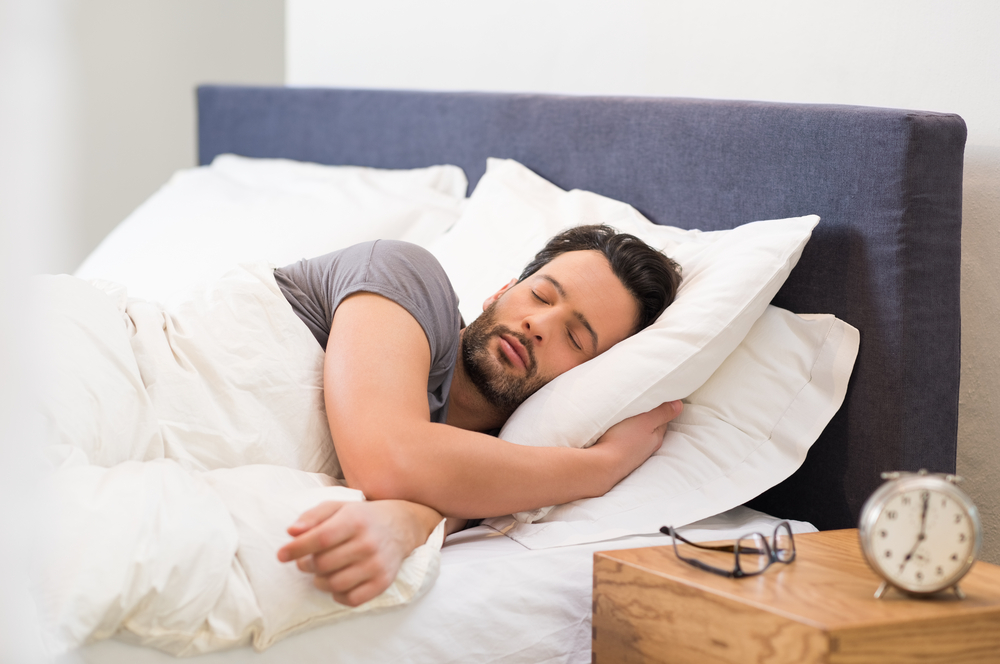Unlock Better Sleep and Memory: Discover Solutions at Sac Sleep and Breathing
Is sleep apnea making it hard for you to remember things during the day? Are you experiencing cognitive impairment and decline due to daytime sleepiness from not getting enough sleep? We welcome you to Sac Sleep and Breathing, where Dr. A. Scott Grivas III, your trusted sleep dentist in Sacramento, CA, is dedicated to addressing the profound connection between sleep apnea and memory loss. If you’re seeking effective solutions, Dr. Grivas offers treatments tailored to combat sleep apnea and its impact on memory. Contact us at (916) 735-4060 to embark on a journey toward improved sleep and cognitive well-being.



How Does Sleep Apnea Lead to Memory Loss?
Sleep apnea of any kind, including obstructive sleep apnea, central sleep apnea, and mixed sleep apnea all contribute to memory problems and cognitive decline. In cases of more severe sleep apnea, loss of memory can be so bad as to be life-changing in all the worst ways. Some of the many ways sleep apnea can negatively impact memory include the following:
Oxygen Deprivation
Sleep apnea disrupts normal breathing patterns, causing intermittent pauses in airflow. During these pauses, oxygen levels in the bloodstream drop. The brain, deprived of sufficient oxygen, experiences oxidative stress, leading to cellular and brain damage, especially in regions crucial for memory formation.
Fragmented Sleep and REM Disruption
Sleep apnea often results in fragmented sleep, preventing individuals from reaching the deeper stages of the sleep cycle, including REM (rapid eye movement) sleep. REM sleep is essential for memory consolidation. Disruptions in this phase hinder the brain’s ability to organize and store memories, contributing to memory loss.
Hippocampal Atrophy
Chronic sleep apnea may lead to structural changes in the brain, particularly the hippocampus, a region vital for memory and learning. Studies suggest that individuals with untreated sleep apnea may experience hippocampal atrophy, further impairing memory function.
Impact on Neurotransmitters
Sleep apnea can alter the balance of neurotransmitters in the brain. The reduction of neurotransmitters like acetylcholine, essential for memory and learning, can occur due to interrupted sleep patterns. This imbalance leads to cognitive deficits, contributing to memory problems.
Inflammation and Cognitive Decline
Sleep apnea is associated with increased inflammation throughout the body, including the brain. Chronic inflammation in the brain has been linked to cognitive decline and memory impairment. The inflammatory response triggered by sleep apnea may contribute to the progression of memory-related disorders.
Sleep-Related Hypertension
Sleep apnea is a common cause of sleep-related hypertension or high blood pressure. Elevated blood pressure, a consequence of untreated sleep apnea, can lead to vascular changes, compromising blood flow to the brain. Reduced cerebral blood flow is a risk factor for cognitive decline and memory loss.



Cognitive Benefits of Treating Sleep Apnea
- Improved Oxygenation: Treating sleep apnea involves methods to ensure consistent airflow during sleep, preventing the drops in oxygen levels associated with apnea episodes. By maintaining adequate oxygenation, treatment helps alleviate oxidative stress on the brain, promoting cellular health and reducing the risk of memory-impairing damage.
- Restoration of Uninterrupted Sleep: Addressing sleep apnea aims to eliminate disruptions in sleep patterns, allowing individuals to experience more prolonged and uninterrupted periods of rest, including crucial stages like REM sleep. Uninterrupted sleep facilitates optimal memory consolidation, enhancing the brain’s ability to organize and store information.
- Preservation of Hippocampal Integrity: Effective treatment of sleep apnea may contribute to preserving the structural integrity of the hippocampus, a key region for memory processing. Treating sleep apnea can help prevent or mitigate hippocampal atrophy (associated with untreated sleep apnea), leading to improved cognitive health and memory function.
- Normalization of Neurotransmitter Levels: Treating sleep apnea brings back the right mix of brain chemicals, like acetylcholine, crucial for memory and learning. This helps keep cognitive functions optimal and preserves memory.
- Reduction of Inflammatory Response: Addressing sleep apnea doesn’t just improve breathing; it also lowers overall inflammation, including in the brain. By managing inflammation linked to untreated sleep apnea, treatment may lower the risk of memory issues and cognitive decline.
Treatments for Sleep Apnea & How They Benefit Memory Retention & Cognitive Function
At Sac Sleep and Breathing, we offer a variety of treatment options to handle symptoms of sleep apnea, combating memory loss and cognitive impairment. some of the treatment options available include the following:
CPAP (Continuous Positive Airway Pressure)
Continuous Positive Airway Pressure or CPAP involves wearing a mask over the nose and/or mouth during sleep, delivering a continuous stream of air to keep the airway open. By preventing airway obstruction, a CPAP machine ensures consistent oxygen flow, reducing the risk of oxygen deprivation-related memory loss associated with sleep apnea.
Daytime-Nighttime Appliance (DNA)
DNA devices are custom-made oral appliances worn during the day and night to reposition the jaw and tongue, promoting optimal airway alignment. DNA helps prevent airway collapse during sleep, facilitating uninterrupted breathing and reducing the impact of sleep apnea on memory function.
The Vivos System
The Vivos System involves a series of oral appliances and, if necessary, additional therapies to address the underlying causes of sleep apnea. By promoting proper jaw development and airway function, The Vivos System aims to improve sleep quality and minimize the risk of memory loss associated with untreated sleep apnea.
Mandibular Repositioning-Nighttime Appliances (mRNA)
Mandibular repositioning nighttime appliances, similar to DNA, are custom-fitted oral appliances designed to reposition the lower jaw and tongue to prevent airway obstruction. By optimizing airway patency, mRNA devices contribute to uninterrupted sleep, reducing the potential impact of sleep apnea on memory.
Lifestyle Changes including Regular Exercise and Diet
Regular exercise and maintaining a healthy diet are lifestyle modifications that can positively impact sleep apnea severity. Weight management and overall health improvements can alleviate sleep apnea symptoms, potentially reducing the risk of memory impairment associated with untreated sleep apnea.
Positional Therapy
Positional therapy involves adjusting sleep positions to minimize airway obstruction. By preventing airway collapse in specific sleep positions, positional therapy contributes to improved sleep quality and helps prevent memory-related issues linked to sleep apnea.
Mouth and Throat Exercises, and Avoiding Alcohol and Tobacco
Strengthening mouth and throat muscles through targeted exercises reduces the risk of airway collapse, while avoiding alcohol and tobacco is recommended to prevent exacerbation of sleep apnea. Enhanced muscle tone supports airway integrity, and avoiding substances that can worsen sleep apnea contributes to improved sleep quality and reduced memory risks.
Surgical Options
Surgical interventions include various procedures targeting specific anatomical structures to alleviate airway obstruction. Surgical options can physically address structural issues contributing to sleep apnea, reducing the severity of the condition and minimizing associated memory loss risks.
Inspire Therapy®
Inspire Therapy involves a surgically implanted device that stimulates the hypoglossal nerve to prevent airway collapse during sleep. By actively supporting airway patency, Inspire Therapy contributes to uninterrupted breathing, potentially mitigating memory issues linked to sleep apnea.
Tracheostomy
Tracheostomy involves creating an opening in the trachea, providing an alternative airway bypassing upper airway obstruction. While reserved for severe cases, tracheostomy ensures a direct and unobstructed airway, preventing oxygen deprivation and associated memory impairment.





Frequently Asked Questions
Is memory loss reversible with sleep apnea treatment?
In some cases, addressing sleep apnea through treatment methods like CPAP therapy or oral appliances may lead to improvements in memory function. However, the extent of reversibility varies among individuals.
Can mild sleep apnea contribute to memory issues, or is it primarily a concern with severe cases?
Even mild sleep apnea can contribute to memory issues. The severity of sleep apnea correlates with the degree of memory impairment, but any level of untreated sleep apnea can impact cognitive function, including memory.
Is memory loss the only cognitive concern associated with sleep apnea?
No, memory loss is just one cognitive concern. Sleep apnea is linked to a range of cognitive issues, including difficulties with attention, learning, and overall cognitive performance.
How soon after starting sleep apnea treatment can improvements in memory be expected?
The timeline for improvements in memory can vary. Some individuals may experience noticeable improvements shortly after starting treatment, while others may require more time. Consistent adherence to the prescribed treatment plan is crucial for optimal outcomes.
Ready to Rediscover Restful Nights and Sharpened Memory?
Take charge of your sleep health, and in turn, enhance your cognitive well-being. If sleep apnea is casting a shadow on your memory, explore tailored solutions beyond conventional methods. Contact us at (916) 735-4060 to schedule your consultation with Dr. Grivas.
Embark on a transformative journey toward improved sleep, a sharper memory, and an overall enhanced quality of life at Sac Sleep and Breathing. Serving new and returning patients from Sacramento and surrounding areas such as Sierra Oaks, Woodside Condo, and Campus Commons, CA. Let’s make every night a restorative experience, and every day a memory worth cherishing.
